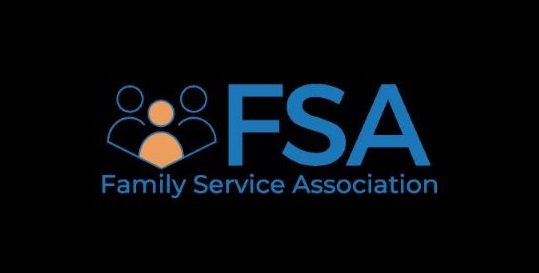“Early on, I felt the weight of our staff and our families as the constant changing information and guidelines were a source of frustration. ”
THE BALANCING ACT: REFLECTIONS ON LEADERSHIP IN THE AGE OF COVID-19
As the COO of Family Service Association (FSA), serving the “high-risk” from infants to the elderly, the COVID-19 pandemic was not something to which I could slowly adjust. Thinking back to when the pandemic became a reality, I am in awe of my co-workers who have put their own health on the line to care for others. I have watched the heroic efforts of our employees stretched more than ever as food distributors, mental health providers and educators to fulfill our mission.
The first few weeks into the pandemic were a blur. Being a professional and mother trying to navigate the state mandates, I like many others felt the strain of the many competing priorities. As a mother, my first concerns were adjusting to a home virtual school model, the quick isolation of friends and the shutdown of the sports that my children loved.
Professionally, my priorities were in problem-solving issues, creating processes and infrastructure to ensure the continuity of services. It felt much like treading water. Early on, I felt the weight of our staff and our families as the constant changing information and guidelines were a source of frustration. At some point, I surrendered to the fact that I would have to continue to make decisions with imperfect and constantly changing information.
Almost a year into this pandemic with no end in sight and many mistakes made, I have had a chance to reflect on how to lead well in this environment. Here are some of the lessons learned so far during this crisis:
• Acknowledge that those providing critical services are essential workers and our plans must accommodate their needs in a safe way.
• Be flexible. Staff are also worried about their loved ones and may need revised schedules or additional time at home.
• People and safety must be the top priority, not contract targets and revenue generation.
• Ensure staff have the right equipment and training to do their job.
• Make decisions from as much evidence-based information as possible.
• Know that with constantly changing data and information everyone must have the ability to change course quickly. Communicate clearly and often.
• Prepare for the changing emotions that come to ensure you can lead your staff through the tough times.
• If you fail, do so quickly and keep moving forward. Give grace to yourself and others.
Our FSA family has worked tirelessly to meet this moment. I am incredibly proud of the committed FSA staff and board who stepped up in creative ways as we navigate these unprecedented challenges. I would be remiss to not thank my husband and children as their love and support feed my motivation to fulfill our mission each day. As this crisis continues to evolve, I look forward to facing the challenges of 2021 and the additional leadership lessons that will present themselves.






